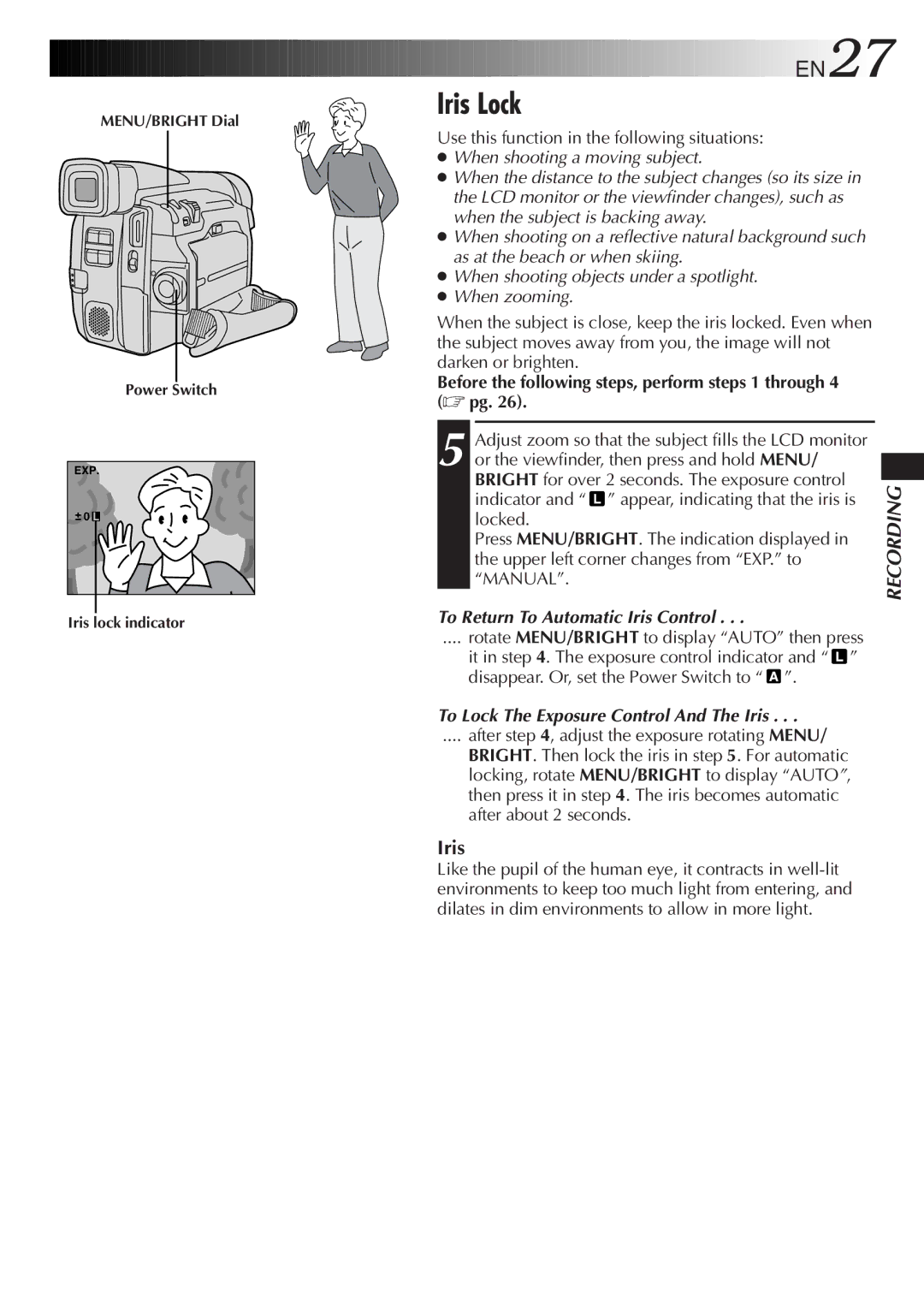
MENU/BRIGHT Dial
Power Switch






























 EN27
EN27
Iris Lock
Use this function in the following situations: ● When shooting a moving subject.
●When the distance to the subject changes (so its size in the LCD monitor or the viewfinder changes), such as when the subject is backing away.
●When shooting on a reflective natural background such as at the beach or when skiing.
●When shooting objects under a spotlight.
●When zooming.
When the subject is close, keep the iris locked. Even when the subject moves away from you, the image will not darken or brighten.
Before the following steps, perform steps 1 through 4 (☞ pg. 26).
| Adjust zoom so that the subject fills the LCD monitor | |
EXP. | 5 or the viewfinder, then press and hold MENU/ | |
| BRIGHT for over 2 seconds. The exposure control | |
| indicator and “ | ” appear, indicating that the iris is |
0 L | locked. |
|
| Press MENU/BRIGHT. The indication displayed in | |
| the upper left corner changes from “EXP.” to | |
| “MANUAL”. |
|
Iris lock indicator | To Return To Automatic Iris Control . . . |
| .... rotate MENU/BRIGHT to display “AUTO” then press |
| it in step 4. The exposure control indicator and “ ” |
| disappear. Or, set the Power Switch to “ ”. |
RECORDING
To Lock The Exposure Control And The Iris . . .
.... after step 4, adjust the exposure rotating MENU/
BRIGHT. Then lock the iris in step 5. For automatic locking, rotate MENU/BRIGHT to display “AUTO”, then press it in step 4. The iris becomes automatic after about 2 seconds.
Iris
Like the pupil of the human eye, it contracts in
